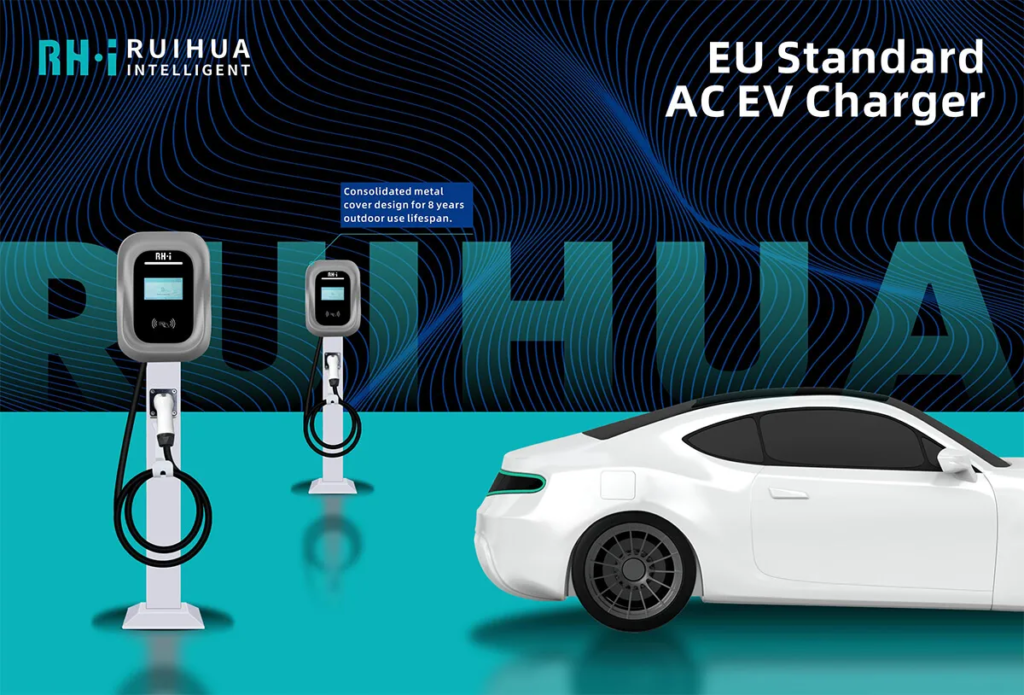What is 240v Level 2 Charger?
Electric car owners know they are driving the car of the future. Many forward-thinking drivers are now looking to update their homes by integrating electric vehicle charging into their home electrical systems. The 240V Level 2 Charger (240 Volt Level 2 Charger) is the preferred choice for many homes because of its fast charging speed and easy installation. In this article, we’ll cover the benefits of 240V Level 2 chargers, installation requirements, and how to choose the best charging device for your needs.
What is the 240V Level 2 charger?
A 240V Level 2 charger is a charging device that provides faster charging speeds for electric vehicles. Unlike the traditional 120V Level 1 Charger (Level 1 charger), the 240V Level 2 charger uses higher voltage and power, resulting in shorter charging times. It typically delivers between 7.7 kW and 22 kW, enough to fully charge an electric vehicle in a relatively short period of time.
In countries such as the United States, the 240V Level 2 charger is a popular charging option for home and commercial users. It not only meets the daily charging needs of households but also supports charging facilities in public places and businesses.
Charging speed:
- Can charge an electric vehicle 3 to 7 times faster than a Level 1 charger.
- Adds approximately 10 to 60 miles of range per hour, depending on the electric vehicle and charger specifications.
Connector Type
- The SAE J1772 connector is used in North America, which is the standard for Level 2 charging.

is level 2 charger the same as 240 volts?
Yes, Level 2 chargers are typically the same as 240-volt chargers, but there are a few details to keep in mind. Level 2 chargers typically use 240 volts, which provides faster charging than a standard 120 volt Level 1 charger. While home electricity is typically 240 volts and may be 208 volts in a commercial setting, the input voltage range for a Level 2 charger is typically between 208 volts and 240 volts.
It’s important to note that while Level 2 chargers use 240-volt outlets, not all 240-volt outlets are suitable for EV charging, and outlet types and connector standards can affect the charging process. Additionally, many Level 2 home chargers come with an adjustable current setting, allowing the current to be adjusted when needed, and use an adapter to make the charger compatible with 110-volt outlets.
Do all Level 2 chargers use a 240 volt outlet?
Yes, Level 2 chargers require a 240 volt outlet to operate.
More accurately, Level 2 chargers draw from 208V to 240V. 240V is just the upper limit of household voltage and the maximum voltage a Level 2 charger can handle.
All plug-in Level 2 chargers require a 240V outlet for power. They use a higher voltage than a standard household outlet (120 volts) to provide faster charging. The higher voltage is the key to delivering miles of range faster, which makes them ideal for home and public charging stations.
However, wired Level 2 chargers do not require an outlet. That’s because the charger connects directly to the home electrical panel. Of course, the voltage used is still 240 V. Corded Level 2 chargers help minimize friction and wear and tear when plugged into an outlet.
Types of 240V Outlets for Level 2 EV Charging
1. NEMA 14-50
- Pros:
- Common and widely available: Often found in homes with electric ranges or RV parks.
- High current capacity: Provides up to 50 amps, enabling fast charging.
- Versatile: Many portable chargers and home charging stations come with a NEMA 14-50 plug.
- Cons:
- Installation required: If not already present, installation may require an electrician.
- Cost: Installation can be expensive if not already in place.
2. NEMA 6-50
- Pros:
- Similar power output: Provides up to 50 amps, similar to NEMA 14-50.
- Suitable for heavy-duty equipment: Commonly used for welding equipment.
- Cons:
- Less common: Not as widely available in homes.
- Compatibility: Some chargers may require an adapter or additional installation steps.
3. NEMA 10-30 and NEMA 10-50
- Pros:
- Already present in older homes: May save installation costs if already available.
- Cons:
- Grounding issues: Lack of a ground wire can be a safety concern.
- Compatibility: Requires an adapter or rewiring to use with modern EV chargers.
4. NEMA 6-30
- Pros:
- Common in various settings: Used in residential, commercial, and industrial applications.
- Medium current capacity: Provides up to 30 amps, suitable for many EV charging needs.
- Cons:
- Less common for EV charging: May require an adapter or additional setup.
- Installation: May need professional installation if not already present.
5. Hardwired Systems
- Pros:
- Permanent and clean installation: No need to plug/unplug after each use.
- No outlet required: Directly connected to the electrical panel.
- Cons:
- Not portable: Cannot be easily moved or used with different chargers.
- Installation cost: Can be expensive and requires professional setup.
Benefits of the 240V Level 2 Charger
Fast Charging
Compared to the 120V Level 1 charger, the 240V Level 2 charger provides higher charging power, allowing electric vehicles to charge in less time. For example, home users can charge while they sleep at night and wake up in the morning with a fully charged vehicle.
Wide compatibility
The 240V Level 2 charger works with most major electric vehicles (EVs) and plug-in hybrid electric vehicles (PHEVs). Whether it’s a Tesla, BMW, Chevrolet or any other brand, it’s basically compatible with this charging standard.
Boosting Vehicle Range
With a 240V Level 2 charger, vehicle owners can more easily add range to their electric vehicles. Typically, it can provide an electric vehicle with a range of 10-60 miles per hour, which is perfectly suited for daily commuting.
Flexible Installation
The 240V Level 2 charger requires a separate 240V circuit and dedicated outlet, which needs to be installed by a professional electrician. However, once installed, the unit is very easy to use. The charging post can be installed inside a garage or in an outdoor parking space, making it easy for owners to charge at any time.
How do I install a 240V Level 2 Charger?
When installing a 240V Level 2 charger, you need to make sure that your home’s electrical system can support the charging device. This usually means that there needs to be a 240V circuit of sufficient capacity and the electrician will need to install dedicated electrical wiring and outlets for the charger.
Here are a few things you need to consider before installing:
- Power capacity: Confirm that your home’s electrical system can provide enough power to support the operation of the charging device.
- Charging post location: Choose a place to install the charger that is easy to access, such as a garage or private parking space.
- Installation by a professional electrician: 240V Level 2 chargers require a professional electrician to install to ensure electrical safety.
How to Choose a Suitable 240V Level 2 Charger?
- Power output: different chargers have different power outputs. The higher the power, the faster the charging speed. For home use, a 7.7 kW or 11 kW charger is usually sufficient.
- Adaptable plug: Make sure the charger is compatible with your EV plug. There are mainly J1772 standard plugs and Tesla-specific plugs on the market, so choose the right type according to your model.
- Brand and reputation: Choose products of famous brands to ensure the quality and after-sales service of the charger.
Summary.
The 240V Level 2 Charger is one of the most popular home charging solutions available. It provides a fast and convenient charging experience that helps electric vehicle owners save time and improve ease of use. With the popularity of electric vehicles, installing a 240V Level 2 Charger has become a must for many home and commercial users. If you are planning to install one too, make sure you choose the right product and get a professional electrician to install it.
If you have any questions about 240V Level 2 chargers, please feel free to contact us for more details!
